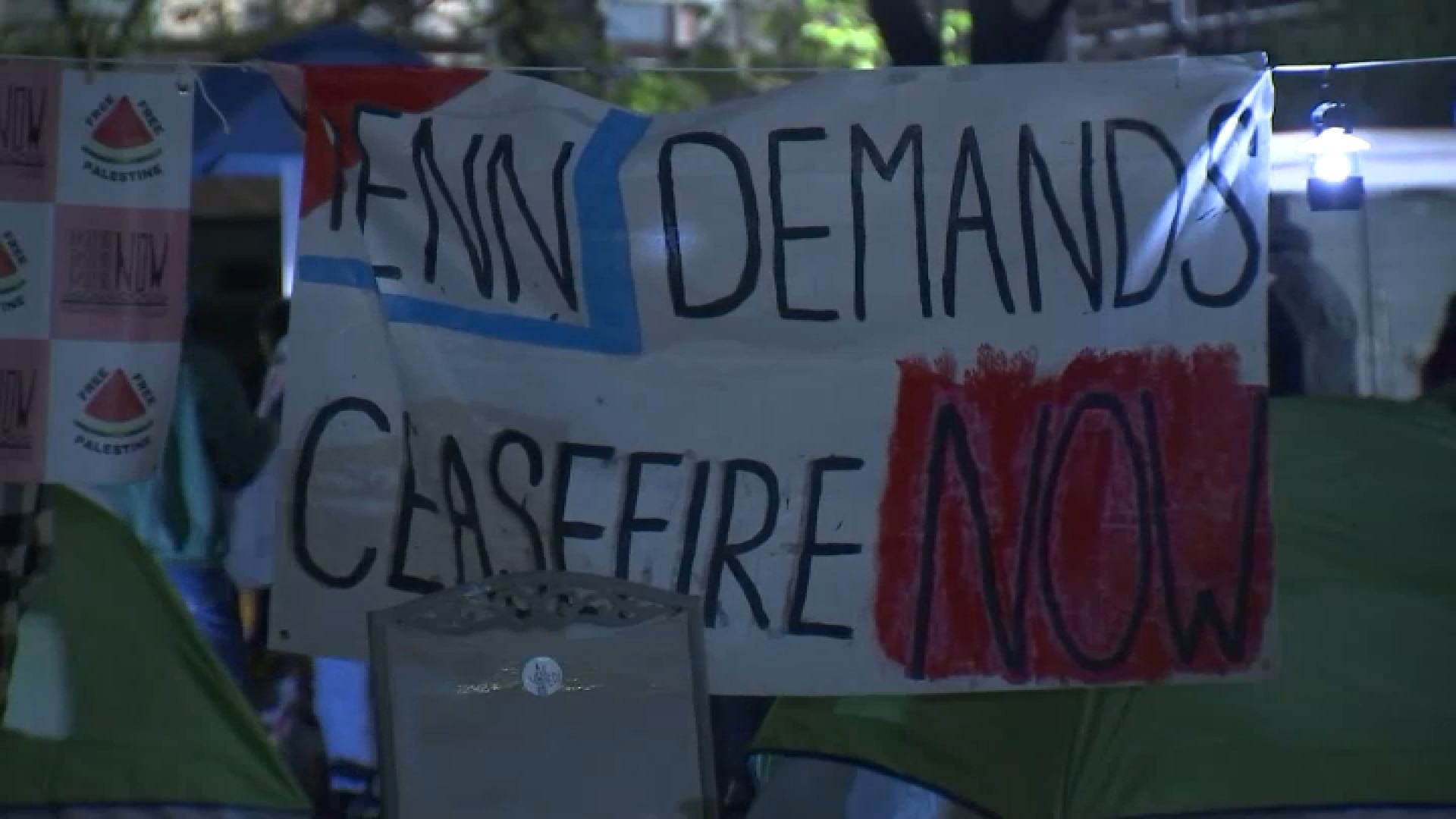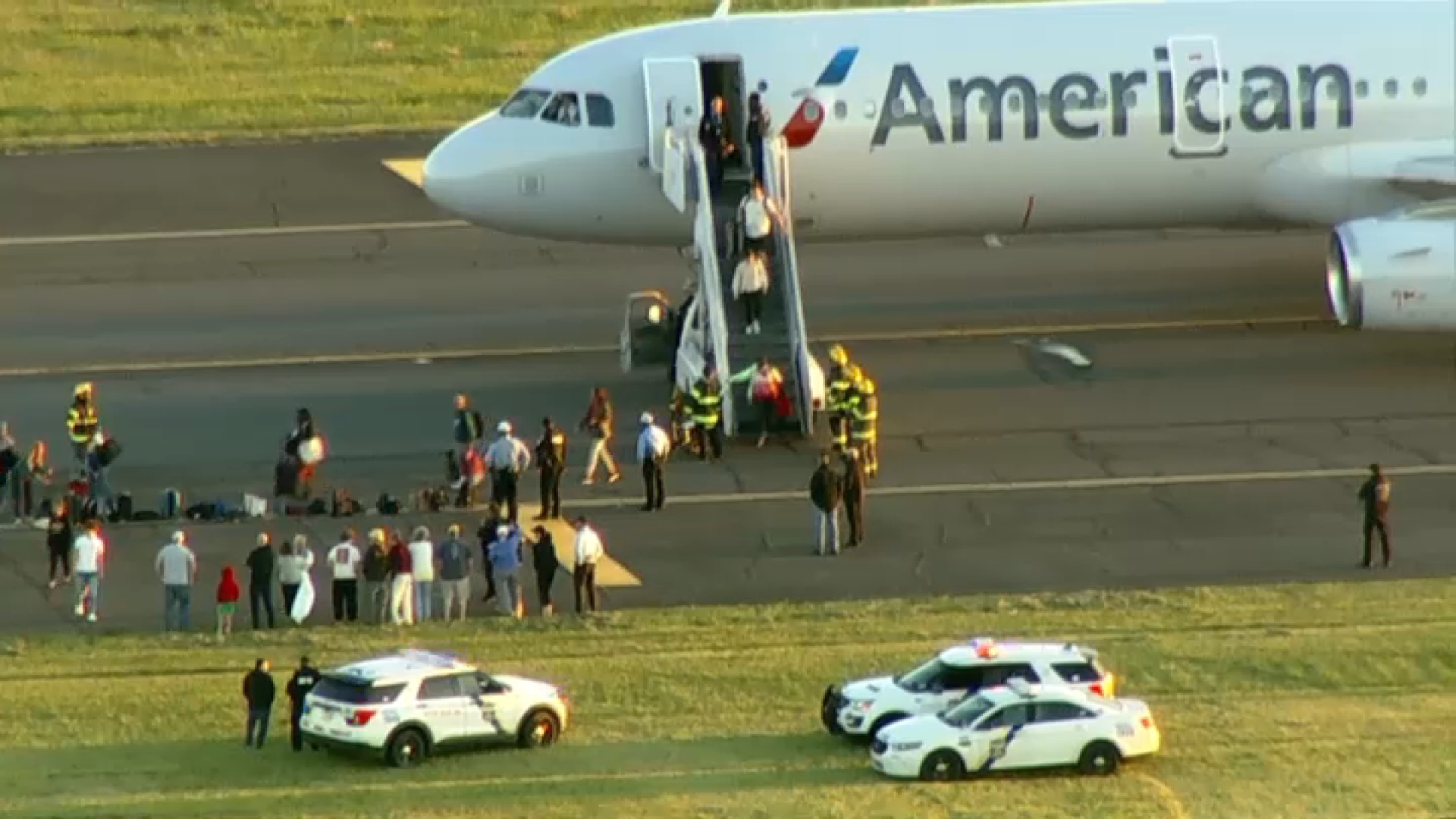The Temple University Police Department increased its security patrols off-campus after a roving group of girls attacked several students -- hitting one in the head with a brick -- in a series of violent incidents last week. But students, and even one local lawmaker, are saying the additional patrols are not enough.
“I do not feel safe a mere three blocks outside the [Temple University Police Department] patrol area,” Jeff Dugan, a Temple senior who started a Change.org petition to expand the school police force’s patrol area, wrote in an email.
At 130 officers, the school has one of the largest police forces in Pennsylvania regularly patrolling approximately .25 square miles. The department also has 63 security staff members and 250 private security guards, according to its website.
Yet, none of the staff monitoring campus safety Friday were aware of the three attacks that occurred over a 20 minute span just off-campus -- where about 10,000 of the university's students live.
All three incidents took place within two blocks of the school's boundaries, but just outside of the Temple Police Department's (TUPD) primary patrol area -- which ends at 16th Street to the west, 9th Street to the east, Susquehanna Avenue to the north and Jefferson Street to the south.
"I was unaware that the patrol area for TUPD was so condensed, particularly because there are many students living west, past 16th Street and north past Diamond Street," Dugan wrote.
Dugan's petition has gathered more than 1,600 signatures since it launched on Tuesday.
“With many students living [immediately off-campus] we collectively would feel more safe knowing that the Temple University Police are allowed to patrol these areas,” the petition reads.
Currently, if an incident occurs beyond the designated patrol area, but within the area bounded by Dauphin, Master, 17th and 8th streets, TUPD officers will respond even though they are not actively patrolling that expanded zone.

“If we’re asked to go beyond the borders, we’re going to respond,” said James Creedon, Temple University senior vice president.
Local
Breaking news and the stories that matter to your neighborhood.
But he hesitated to say the university would expand its patrol area.
“Let’s say we go to 18th…something happens on 20th, do we move out to 20th?” Creedon asked. “Do we go to 22nd? What is that boundary as we go further and further?"
Dugan, who says he appreciates the TUPD and the Philadelphia Police Department’s current efforts, also calls for a stronger partnership between the university and the two forces.
“If expanding TUPD’s patrol area is not the answer, we expect Temple, TUPD and PPD to collaboratively develop an appropriate solution,” he wrote.
The departments worked together to apprehend the suspects involved in the three incidents, initially charging 15-year-old Zaria Estes and two other teens as adults for their role in the assault.
But Daylin Leach, a Temple alum and Pennsylvania State Senator, says more coordination is needed.
“I would want to know if there is some group of kids attacking other kids, even if it is two blocks off campus,” he said. “I’d want to know if there was a string of robberies that happened at the subway station north of campus."
Leach, who is a member of the State Senate Education Committee, acknowledges that campus safety has improved greatly since he graduated in 1983.
But he adds any college receiving state funding, like Temple, has a responsiblity to provide a safe environment.
“Any crime that involves violence or the threat of violence, I think everyone should know about it,” said Daylin. “If there is an incident off-campus that could easily spill over to on-campus, don’t wait to let people know.”
He suggests the school reevaluated the "TU Alert" system and begin checking in with police about criminal activity near the campus daily to determine if students should be notified of any off-campus crimes and
School officials were informed of the Friday assaults hours after they occurred and the “TU Alert” system is reserved for imminent dangers or threats, like an active shooter on campus.
“All things that the system were set to prevent, all happened at one time. That’s what we have to put under the microscope now,” Temple’s Creedon said. “And I think people are going to see a lot more alerts and a lot more aggressive alerting process.”
Leach supports that possibility, saying, “Let’s err on the side of giving people knowledge that may be relevant to their lives.”
In the wake of the weekend attacks and the resulting backlash from a lack of information, Temple officials are consulting with other city-based universities, including University of Pennsylvania, Rutgers University, Howard University, University of Chicago, New York University and Fordham University, on best practices for handling off-campus crimes.
For now, Creedon says the school will continue to increase its police presence off campus, as well as its undercover police presence.
Hiring additional officers and adding more blue light cameras on and off-campus are also possibilities.
Contact Alison Burdo at 610.668.5635, alison.burdo@nbcuni.com or follow @NewsBurd on Twitter. Contact Vince Lattanzio at 610.668.5532, vince.lattanzio@nbcuni.com or follow @VinceLattanzio on Twitter.



